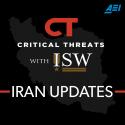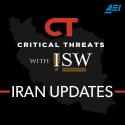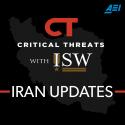Russian Offensive Campaign Assessment, April 29, 2023
Apr 29, 2023 - ISW Press
Wagner Group financier Yevgeny Prigozhin threatened to withdraw Wagner forces from Bakhmut if the Russian military command fails to provide more ammunition to the Wagner mercenaries. Prigozhin stated in an interview with a Kremlin-affiliated milblogger on April 29 that the Wagner mercenaries will continue to fight in Bakhmut but will need to “withdraw in an organized manner or stay and die” if the situation does immediately not improve. Prigozhin stated that Wagner needs about 80,000 shells per day — its previous shell allowance prior to apparent Russian Ministry of Defense (MoD) efforts to reduce Wagner’s influence. Prigozhin added that Wagner is only receiving 800 of the 4,000 shells per day that it is currently requesting. Prigozhin claimed that Wagner and Deputy Commander of Russian Forces in Ukraine Army General Sergei Surovikin developed a plan to “grind” the Ukrainian forces in Bakhmut that deprived Ukraine of its initiative on the battlefield. Prigozhin’s mention of Surovikin is likely an attempt to publicly affiliate with Surovikin as Russian President Vladimir Putin’s favor is shifting away from Chief of the Russian General Staff Army General Valery Gerasimov’s network. Prigozhin is likely attempting to regain access to more ammunition as Putin is once again reshuffling the Russian military leadership in a way that may favor Prigozhin.









